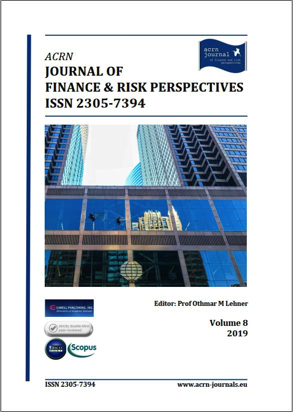Victor Olkhov, 2019, Economic and Financial Transactions Govern Business Cycles, ACRN Journal of Finance and Risk Perspectives, 8 (1), 01-20

Victor Olkhov
TVEL, Moscow, Russia
Abstract
Problem/Relevance - This paper presents new description of the business cycles that for decades remain as relevant and important economic problem.
Research Objective/Questions - We propose that econometrics can provide sufficient data for assessments of risk ratings for almost all economic agents. We use risk ratings as coordinates of agents and show that the business cycles are consequences of collective change of risk coordinates of agents and their financial variables.
Methodology - We aggregate similar financial variables of agents and define macro variables as functions on economic space. Economic and financial transactions between agents are the only tools that change their extensive variables. We aggregate similar transactions between agents with risk coordinates x and y and define macro transactions as functions of x and y. We derive economic equations that describe evolution of macro transactions and hence describe evolution of macro variables.
Major Findings - As example we study simple model that describes interactions between Credits transactions from Creditors at x to Borrowers at y and Loan-Repayment transactions that describe refunds from Borrowers at y to Creditors at x. We show that collective motions of Creditors and Borrowers from safer to risky area and back on economic space induce frequencies of macroeconomic Credit cycles.
Implications – Our model can improve forecasting of the business cycles and help increase economic sustainability and financial policy-making. That requires development of risk ratings methodologies and corporate accounting procedures that should correspond each other to enable risk assessments of economic agents.
Keywords: business cycle, economic transactions, risk assessment, economic space
Back to Volume 8